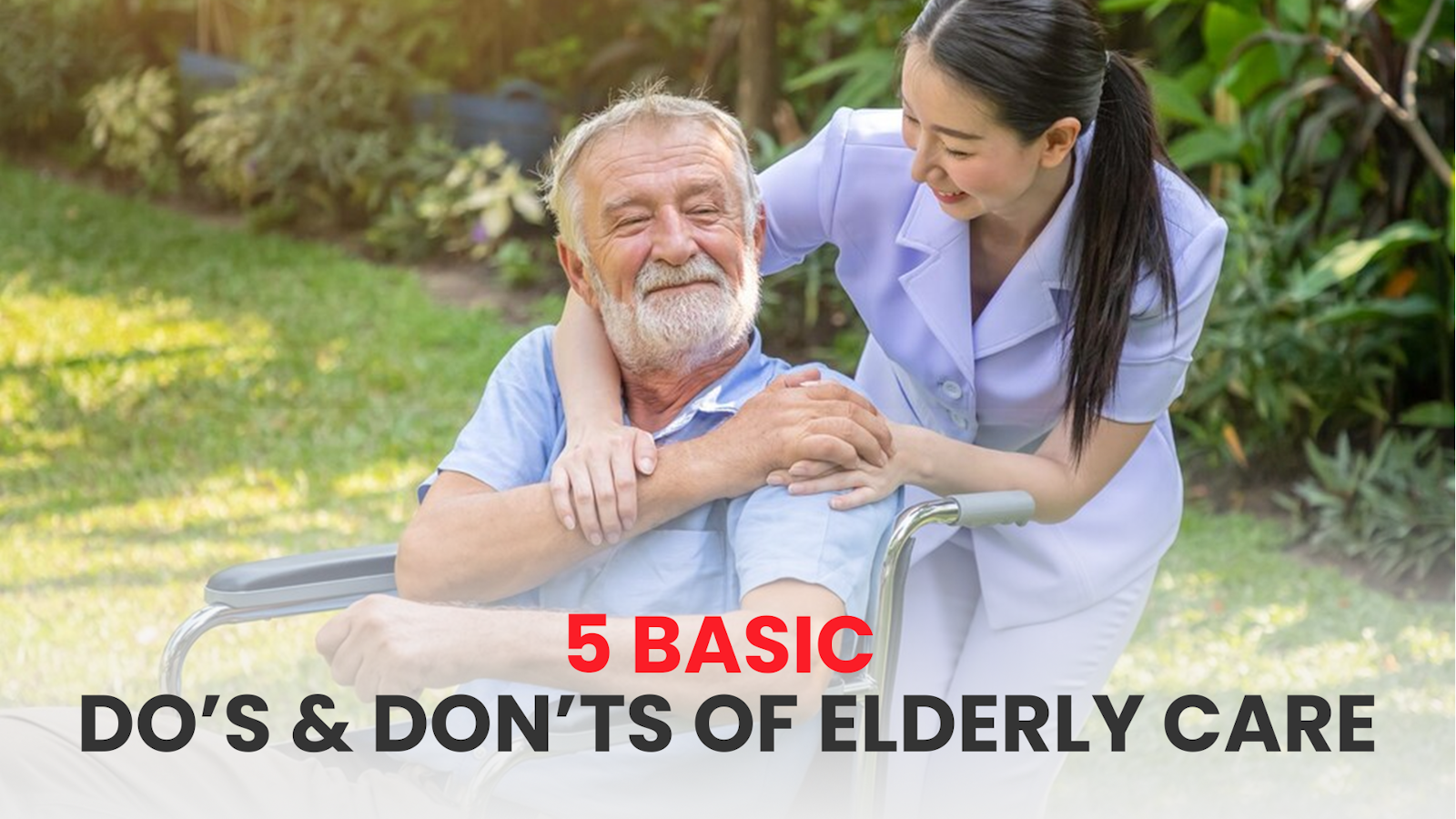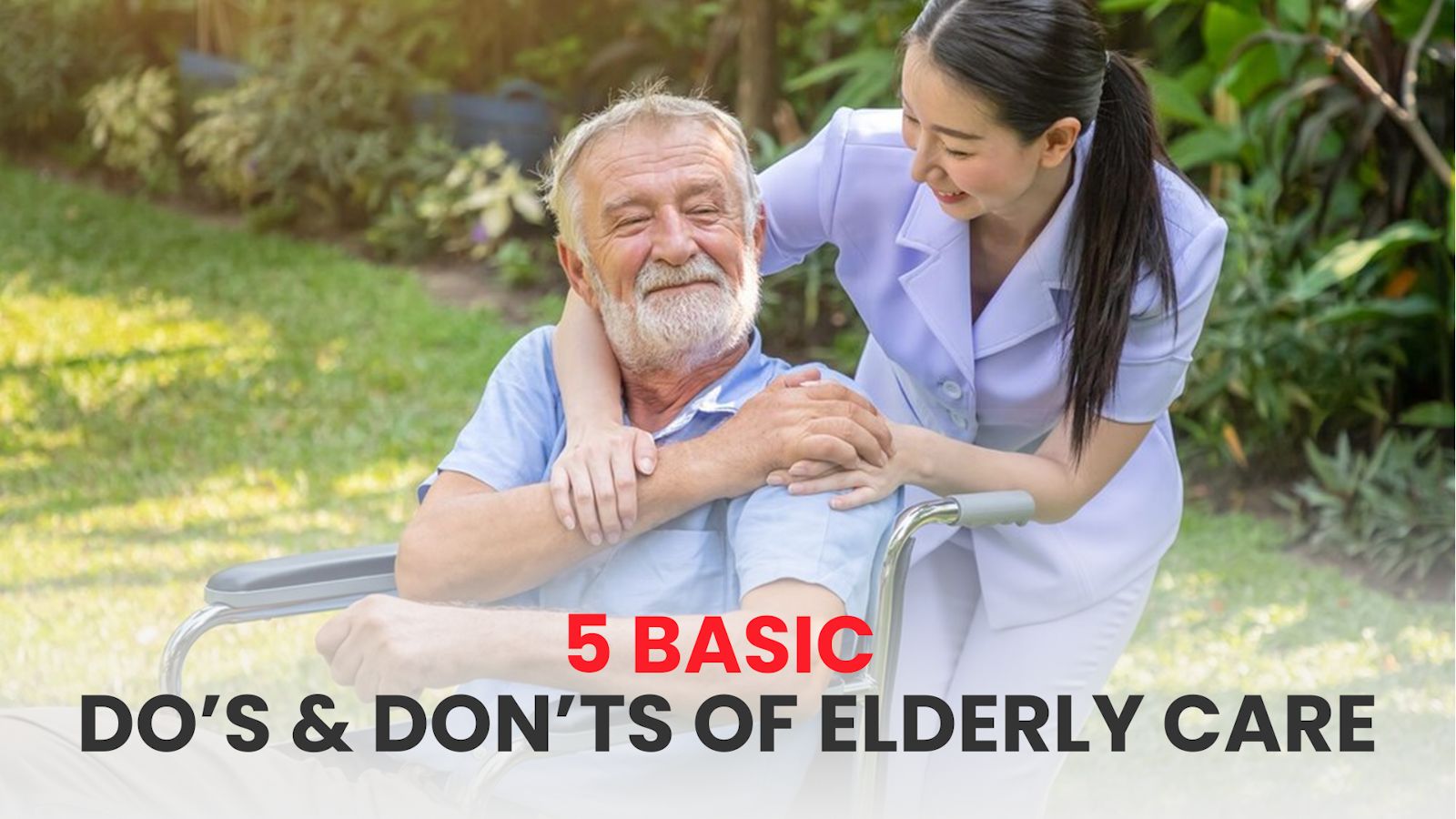Being a caretaker entails many responsibilities, some of which you may be unaware of. If you’ve ever had to care for an elderly relative, you know how difficult it can be. It’s difficult to see someone you care about struggle psychologically and physically and being there for them 24 hours a day may wear you down.

There are a few things you should do and a few things you should NOT DO at all. In this article, we’ve rounded up some effective coping strategies to make being the primary caregiver a little less strenuous. As narrated by our team of experts at My Noble Care
Dos of Elderly Care
1-Educate Yourself
Understand more about the elder person you’re taking care of. Look out for any physical and/or cognitive problems they might have. In order to take better care of the older person, it’s imperative to have all the necessary information, which may seem vital in the caring process.
It is especially true if the senior has Alzheimer’s disease or another kind of dementia. Consult your loved one’s doctor and other health care experts engaged in their treatment and seek information and educate yourself to understand them better.
2-Be Patient & Persistent
Taking care of an older adult is not an easy task. You REALLY have to be patient and persistent throughout the process. Take all the necessary amount of time required to understand the person you are going to be a caretaker of. Make sure the entire process is full of learning and understanding the other person. Be patient & be very persistent.
3-Establish A Routine
Taking the time to organize your schedule may seem like a luxury, but it’s something that every caregiver should do. Routines bring security and comfort. They keep you from stressing and worrying about forgetting anything crucial.
Planning also allows you to make better use of your time. You may, for example, find your weekly appointments and schedule errands around them. You’ll also be able to notice schedule issues that may need enlisting the assistance of others.
4-Do not just be a Caregiver, Be A Companion
You’re not just there to assist your elder one with everyday household and hygiene chores, you’re also there to give company. Be more than what your duty requires you to be. Be humble, gentle, and offer an ear that hears more than you do. Take notes from their behaviors to understand what they like and dislike. More than just a caregiver, try to be a companion and this will have you build a swift and understanding relationship with them.
5-Be Respectful & Positive
You must always be respectful of your patient’s privacy and confidentiality. It may be accomplished by simply doing what really makes them comfortable and happy, allowing them to select when to eat, or listening to their worries will help you build a respectful relationship.
The List of Don’ts
1-Being Quickly Impatient
Your first big Don’t is “being quickly impatient.” Try to hold on to the rope of patience and not be quickly provoked. It would be best if you are well-prepared to deal with challenging individuals who would refuse or ignore your assistance at some point. You must learn to take command of the situation and devise strategies to persuade your patient to accept your help.
2-Do Not Go Beyond The Boundary
As an elderly caretaker, you must be aware of your limits. Your patient’s family concerns are insignificant to you. Never ignore their requests for seclusion. Always try to stay out of their personal or family matters as they are none of your concerns. It saves you from a lot of unanticipated troubles.
3-Never Offer Unsolicited Advice
It’s in the nature of a caretaker to pour out love, care, and constant solutions to any problem, even minor. Do not be too outgiving when it comes to advice. Not every situation needs unsolicited advice. Know when to speak and only give your opinions if you are being asked for.
4-Don’t Assume
Being a caretaker, you may be considering a course of action that you feel will make your elderly relative safer. Rather than deciding for them, present them with a list of alternatives, along with the benefits and drawbacks of each. Expect them to prioritize their quality of life over their safety.
5-Never Use Force
Being a caretaker, you might be encountering situations where you’ll be frequently impatient in certain situations. These are the situations where the older adult is not cooperating with you and is having a hard time understanding you as their care assistant. In these situations, you have to remain calm and composed. You have to make sure that you do not use any verbal or physical force.
Caring is not an easy task, especially for an older person. Caring for an older person may be both gratifying and challenging. It may be both stressful and terrifying. A caregiver may need to learn how to manage complex medical difficulties when a specific health issue arises. Another issue is time management, there never seems to be enough hours in the day to get everything done.
Published by HFA on January 14, 2024

